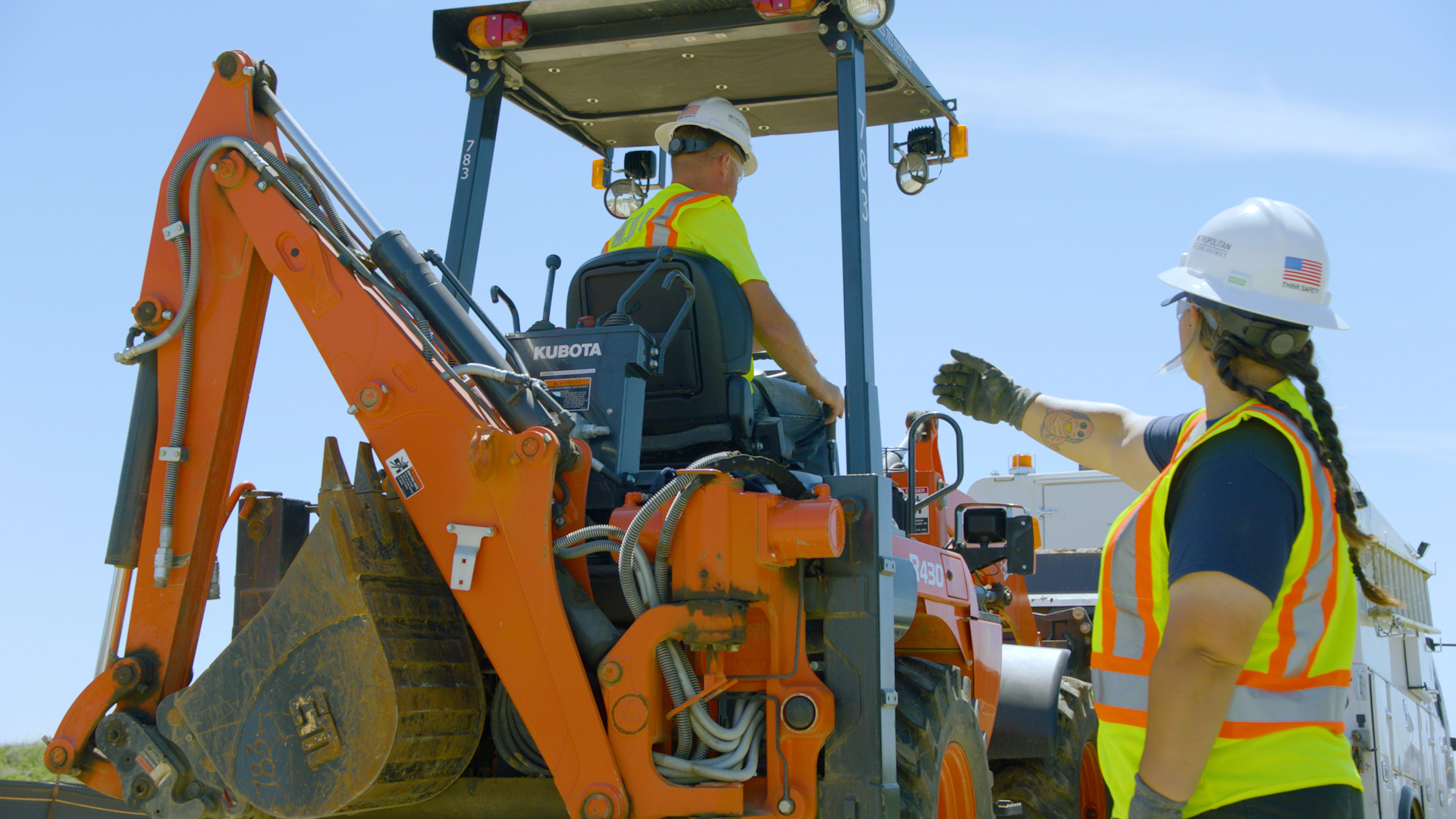WHAT IS AN EMERGENCY?
Gas leaks, odor of gas, damaged lines, carbon monoxide symptoms and water main breaks are all considered emergencies.
If you smell gas, do not attempt to locate the leak. Instead, leave the house or building right away. Do not use any electrical switches, appliances, lights, telephones, or mobile devices, as an electrical charge could create a spark. When you are in a safe place, call M.U.D.'s emergency hotline at 402.554.7777 or 9-1-1.
If someone is showing symptoms of carbon monoxide poisoning, call 9-1-1 immediately. Symptoms are like the flu.
If you have a water-related emergency, call 402.554.7777. Our personnel are ready to assist you 24/7. When in doubt, call us immediately.
Learn More¿QUÉ ES UNA EMERGENCIA?
Las fugas de gas, el olor a gas, las tuberías de gas dañadas, los síntomas de monóxido de carbono y roturas en las tuberías principales de agua son consideradas emergencias.
Si huele a gas, NO trate de localizar la fuga/escape. Al contrario, abandone la casa o el edificio inmediatamente. No utilice los interruptores eléctricos, electrodomésticos, luces, teléfonos o equipos móviles, ya que una carga eléctrica podría provocar una chispa. Una vez que se encuentre en un lugar seguro, entonces llame a la línea directa de emergencia de M.U.D. al 402.554.7777 o al 9-1-1.
Si alguien tiene síntomas de envenenamiento causados por el monóxido de carbono, llame al 9-1-1 inmediatamente. Los síntomas son como los de la gripe/catarro.
Si tiene una emergencia relacionada con el agua, llame al 402.554.7777. Nuestro personal está listo para ayudarle, 24/7. Cuando dude o crea que hay una emergencia, llámenos de inmediato.
Aprende MásM.U.D. must maintain a reliable distribution system to provide safe, high quality drinking water and natural gas to the communities we serve.
To replace targeted gas and water mains, the District has an infrastructure replacement program. Our gas and water rates include monthly fees to provide long-term funding for infrastructure replacement.

Our Plan
In 2008, the District’s Gas Department began an accelerated program to replace cast iron gas mains; this program should be substantially completed by the end of 2027.
The Water Department has more recently focused on risk modeling, which looks at several factors to determine the priorities of water main replacements. Our long-term goal is to increase the rate of main replacements to approximately 25 miles a year. We are working hard to reverse the trend of the increasing number of water main breaks that impact our community.
Whenever possible, projects are done in conjunction with road or redevelopment projects or the City of Omaha’s combined sewer separation work to save money and minimize inconvenience to customers.
Other M.U.D. Resources
-
Lead Service Line Replacement Program
Visit our “Detect. Correct. Protect.” page below.
-
Gas Regulator Station Upgrades
M.U.D. continues to install above-ground natural gas regulator stations and associated piping in public right-of-way. These stations assist in providing a steady and reliable source of natural gas to better support the surrounding area.






